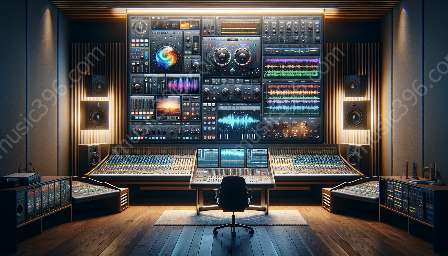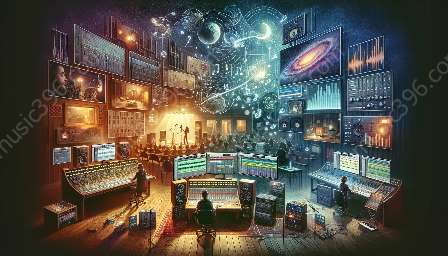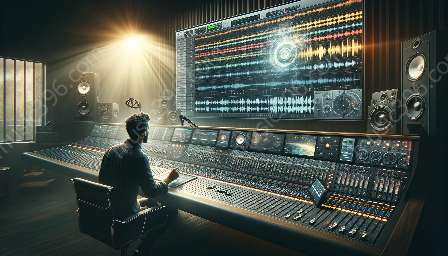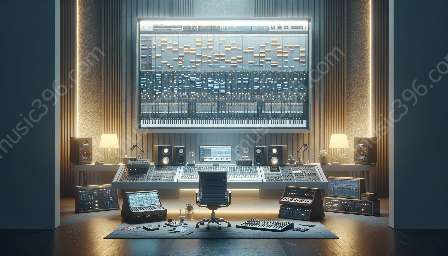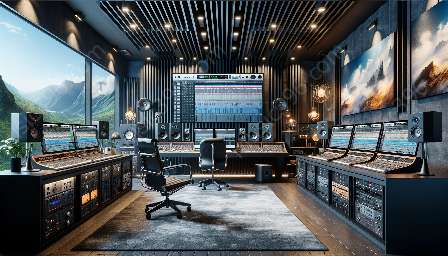In the fast-evolving world of music production and sound engineering, professionals specializing in basic audio effects within the context of DAW technology have a wide range of potential career paths. This article will explore the significance of basic audio effects within digital audio workstations and delve into the diverse career opportunities available to those with expertise in this field.
The Importance of Basic Audio Effects in DAW Technology
Basic audio effects play a crucial role in the creation and manipulation of sound within digital audio workstations (DAWs). These effects are essential tools for enhancing and shaping audio recordings, enabling professionals to achieve the desired sonic characteristics for music, film, television, and other media projects.
Understanding Basic Audio Effects
Before delving into potential career paths, it's important to understand the fundamental concepts of basic audio effects. These effects typically include processes such as equalization, compression, reverb, delay, modulation, and more. Each of these effects serves a distinct purpose in altering the timbre, dynamics, and spatial characteristics of audio signals, contributing to the overall quality and aesthetic of the final audio output.
Potential Career Paths
Professionals specializing in basic audio effects within the context of DAW technology can pursue a variety of rewarding career paths. Some of the potential opportunities include:
- 1. Audio Engineer: Audio engineers work on recording, mixing, and mastering audio tracks, utilizing their expertise in basic audio effects to enhance the sonic characteristics of recordings. They may find employment in recording studios, post-production facilities, or live sound environments.
- 2. Sound Designer: Sound designers play a crucial role in creating and manipulating sound effects for various media productions, including films, video games, and animations. Their understanding of basic audio effects allows them to craft immersive and impactful auditory experiences.
- 3. Music Producer: Music producers use basic audio effects to shape the sound of musical compositions, working closely with artists to achieve the desired sonic vision for their songs. They often collaborate with recording studios, record labels, and independent artists.
- 4. Mixing Engineer: Mixing engineers specialize in blending and balancing individual audio tracks to create a cohesive and polished mix. Their mastery of basic audio effects allows them to sculpt the sonic landscape and ensure each element contributes to the overall musicality of a production.
- 5. Audio Educator: Professionals with expertise in basic audio effects can pursue careers in education, sharing their knowledge and skills with aspiring sound engineers and music producers. They may work as instructors at audio engineering schools, universities, or online educational platforms.
- 1. Software Development: Those with a deep understanding of basic audio effects and DAW technology may pursue careers in software development, contributing to the creation of audio plug-ins, virtual instruments, and DAW software enhancements.
- 2. User Experience Design: The user experience and interface design of digital audio workstations rely on the expertise of professionals who understand the practical implementation of basic audio effects. Career opportunities in UX/UI design within the music production software industry are therefore within reach.
- 1. Surround Sound Mixing: The demand for surround sound mixing capabilities in film, gaming, and immersive media experiences presents a specialized career path for professionals with expertise in spatial audio and basic audio effects.
- 2. Virtual Reality Audio: The emergence of virtual reality and augmented reality technologies has created a demand for audio professionals who can apply basic audio effects in innovative ways to enhance the auditory dimension of immersive experiences.
- 3. Algorithmic Processing: Professionals with a penchant for technical innovation and algorithmic processing may explore career paths in the development of advanced audio effects algorithms for DAWs and audio software applications.
Advancements in DAW Technology
The continuous advancements in DAW technology have opened up new career possibilities for professionals specializing in basic audio effects. With the integration of innovative audio processing tools, virtual instruments, and real-time performance capabilities, individuals in this field can explore new avenues such as:
Specialization and Niche Opportunities
As professionals delve deeper into the realm of basic audio effects within DAW technology, they may find opportunities for specialization in niche areas, such as:
Conclusion
The world of basic audio effects within DAW technology offers a multitude of exciting and diverse career paths for professionals. Whether specializing in traditional roles such as audio engineering and sound design, or venturing into emerging fields like software development and virtual reality audio, the opportunities are vast for those with a passion for shaping and manipulating sound. As the landscape of DAW technology continues to evolve, professionals in this field can look forward to a dynamic and rewarding journey filled with innovation and creative possibilities.



